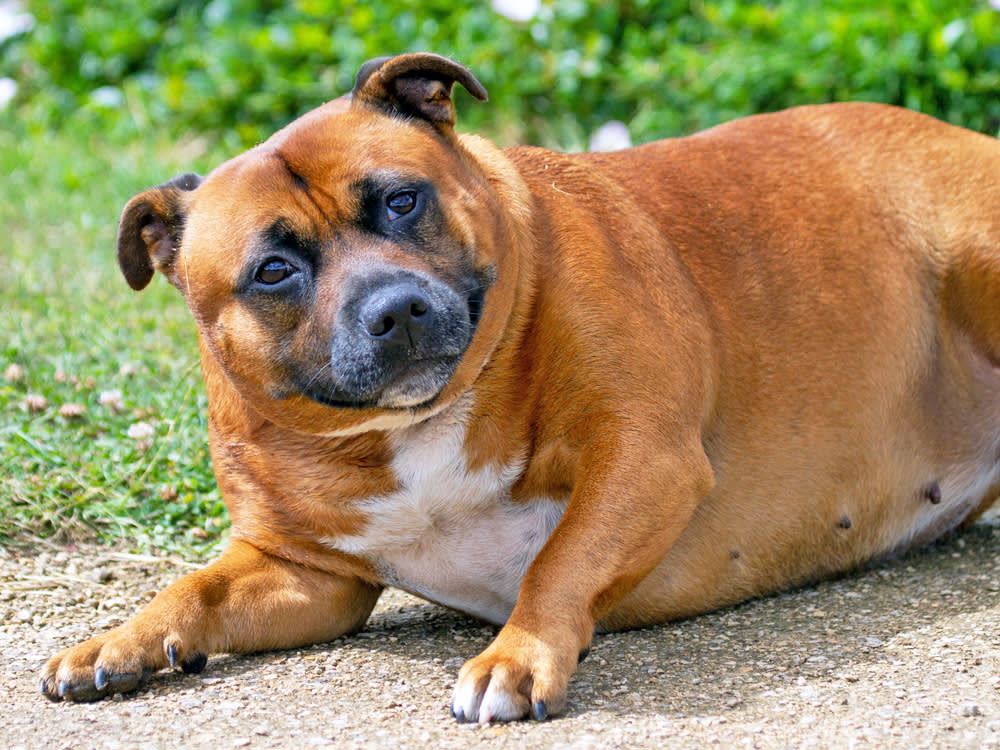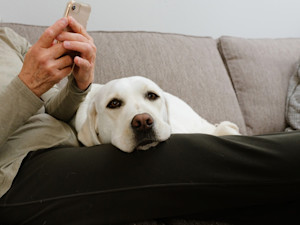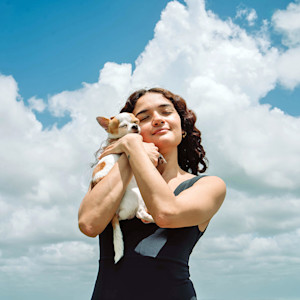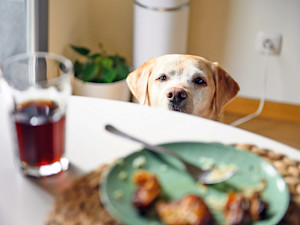Ozempic for Pets Is Just Around the Corner
Is this the future of pet health care?
For the past few years, it has been nearly impossible to scroll through social media, open a magazine, or tune into the news without hearing mention of Ozempic or one of the other controversial appetite-suppressing drugs everyone seems to be on. Now, even our pets can’t escape the hot topic. Okava, a biotech firm, is hoping to bring a similar weight-loss product to the market for dogs and cats.
Obesity in pets is incredibly common — according to VCA Animal Hospitals,opens in new tab 59 percent of dogs and 61 percent of cats are overweight or obese. Each of those pets are at a higher risk for health problems, including diabetes, cancer, heart disease, hypertension, arthritis, and many more conditions. It’s a reality that many pet parents are too familiar with, and Okava is seeking a potential solution.
Okava’s drug, OKV-119, works similarly to drugs like Ozempic and Wegovy to mimic the effects of a hormone called GLP-1, which regulates blood sugar and promotes weight loss. The drug developers aim to create an implant that can last for six months at a time.
A short pilot study opens in new tab showed that OKV-119 is capable of delivering the drug continuously over several months and can lead to weight loss in cats. There are many more tests to go before OKV-119 is confirmed safe for both cats and dogs, and Okava plans to begins trials shortly. They hope to launch the drug as soon as 2028.
How much do you spend on your pet per year?
This isn’t the first attempt at a weight-loss drug for pets. Another product, Slentrol, was developed in 2007 and worked by blocking a protein that causes the body to absorb dietary fat. Slentrol was eventually discontinued due to side effects, lack of demand, and the emotional toll it took on the pets’ guardians. “We found that pet owners didn’t like Slentrol because their dogs weren’t as excited about their food,” veterinarian Dr. Angela Rollinsopens in new tab told Veterinary Practice News. “Since seeing your pet with a good appetite is such an emotional bonding part of pet ownership, it was difficult for pet owners to wrap their heads around the fact they didn't eat as much.”
Michael Klotsman, the chief executive of Okava, is hopeful that the new product will be far less distressing. “What owners should expect to see is their pet eating appropriate portions without the previous food obsession,” he told opens in new tab The Guardian. “They’ll still eat regularly and show interest in meals, just without the excessive begging, scavenging or gulping behavior.”
Still, OKV-119 won’t be treated as an easy fix for canine obesity; it will be considered one more tool veterinarians could suggest if traditional weight loss methods aren’t cutting it. The first defense against canine obesity? Good old-fashioned diet and exercise. Keeping an eye on your pet’s portions — even if it means resisting some pleading puppy-eyes — and making sure they’re getting plenty of active time is the best way to keep them strong and happy. A weight loss drug should only be considered if lifestyle changes fail to show results.
If and when OKV-119 reaches the market, your veterinarian can help you decide what’s best for your pet. In the meantime, let’s all agree to handle things a little differently this time around — there’s no need to speculate about which pet influenceropens in new tab is on puppy Ozempic. Luckily, pets are a lot less judgmental than people...and a lot less online.







